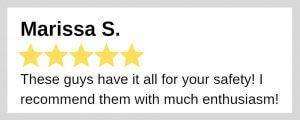Compared to other establishments, essential fire emergency protocols for healthcare facilities may be much more complicated. From evacuation guidelines to fire safety equipment requirements, hospitals and healthcare facilities must follow strict protocols when it comes to fire safety.
Unlike other facilities such as schools and campuses, sports stadiums, industrial warehouses, or apartment complexes – the occupants of healthcare facilities are the sick, elderly, and disabled – and it’s one of the reasons why the implementation of fire safety rules are unique for healthcare facilities.
According to a report issued by the National Fire Protection Association in 2017, an average of 5,700 structural fires happens in healthcare facilities every year.
There are many integral aspects of healthcare facility management. The safety of the patients and healthcare staff are of utmost importance. Healthcare facility managers must, therefore, be constantly aware of essential things such as routine safety checks, fire safety equipment maintenance and repair, and fire safety education – among other things.
Here is some important information about fire safety equipment and fire prevention considerations for healthcare facilities – whether it’s a smaller clinic, big hospitals, nursing homes, specialized clinics, etc.

The NFPA has reported that the leading cause of hospital and clinic fires is from cooking appliances and equipment. Studies also discovered that the peak times for hospital fires are when the staff is preparing meals.
One good news about this type of fire is it’s often contained in the kitchen. To safely prevent fires originating from kitchen equipment, make sure to do the following:
Electrical malfunctions are prevalent in all types of establishment. The Federal Emergency Management Agency (FEMA) found out that one out of five fires is a result of an overloaded outlet or broken wiring.
Thus, your healthcare facility’s electrical structure and setup must always be checked. Electric fires can be avoided with routine safety checks and proper maintenance.

Avoid using extension cords if you can. Always connect electrical equipment to the outlet to prevent the use of extension cord.
Also, it goes without saying that the cords must not be placed near flammable materials. Make sure they are not underneath a rug or a carpet.
Ensure you are contracting certified and professional electricians to set up, monitor, repair, and maintain your building’s electrical system.
NFPA recommends installing wet-pipe sprinkler systems. This sprinkler system discharges water as soon as it detects heat. Also, the NFPA reported that healthcare facilities with wet-pipe sprinkler systems only spent up to $5,000 for property damage per facility. Those without spent $14,000.
All fire safety equipment needs to be regularly inspected to ensure that they are in good condition. As a facility manager, you can also do the following visual inspections until you can get a professional to conduct an official assessment.
Please reach out to us for all your fire safety equipment needs for your healthcare building. Our goal is to meet your specific fire protection requirements to ensure the safety of your facility.